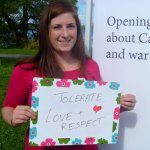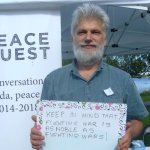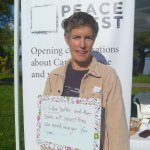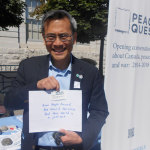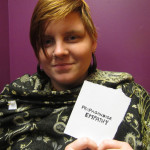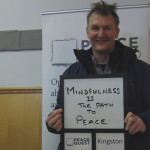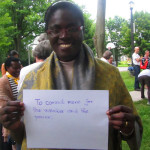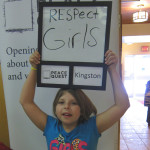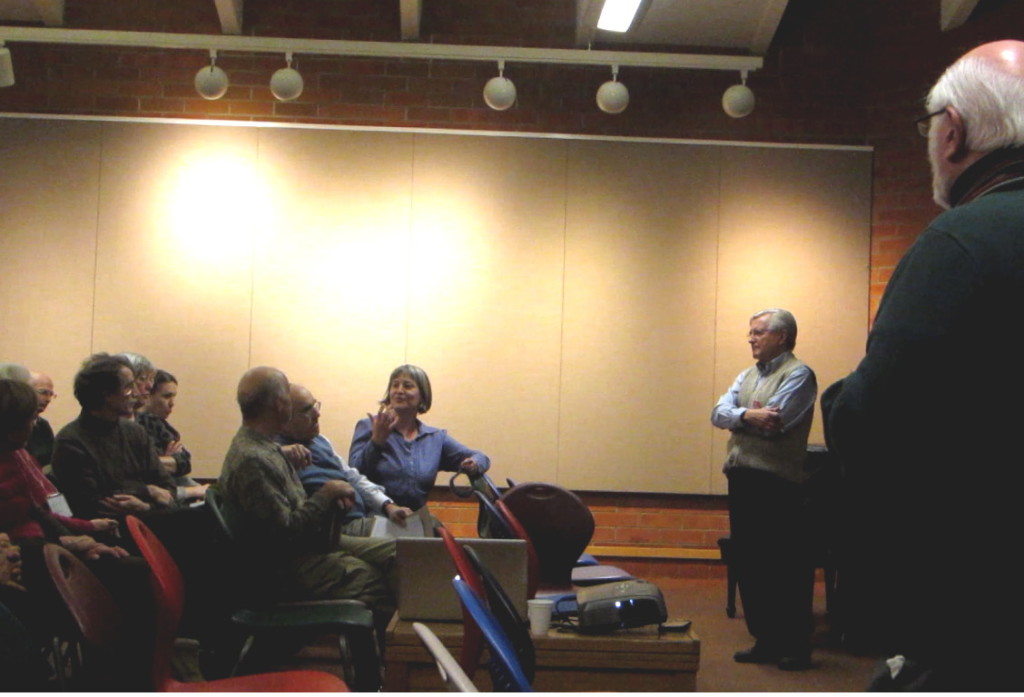Great Lakes Bridges: Spiralling towards peace at the PeaceQuest Plenary
Highlighting the cyclical nature of war and injustices and summarizing aspects of a response to the evening’s lecture, the conclusion of the PeaceQuest Februaru 2015 Open Plenary included the beautiful and unanticipated sharing of incredibly apt 17th song:
“War begets poverty, poverty peace
Peace maketh riches flow, fate ne’er doth cease, [‘nature does not cease’]
Riches produce pride, pride is war’s ground,
War begetteth poverty, the world goes round”**
Chair Michael Cooke concluded by commenting that although war and violence have indeed seemed circular, we need to work to change such circles into spirals towards peace.
This recalled to me a discussion of deepening circles and spirals in peace-building and reconciliation work in an interview on the “Art of Peacebuilding” with Notre Dame professor Jean Paul Lederach on American Public Media’s show “On Being.” (You can listen to the show, and find related content such as photos and poetry, on the On Being website).
Speaking from his years of experience in working for peace and reconciliation with communities deeply affected by violence, Lederach states that “many of the things that are most important to healing and reconciliation are in the realm not only of the unspeakable but are often in the realm of things that are not linear.” This non-linearity can be difficult to align with the logic of results-based program plans and funding applications, but it encompasses substantial processes in reconciliation and healing, including the idea of “going in circles.” While it may seem that going in circles is going nowhere, Lederach says it “may be about something very different. It may be about deepening.” This is a very different sort of directionality-and while seemingly circular, is different than the cycles of war described in the song, and perhaps relates to the “spiralling towards peace” that was called for at the PeaceQuest plenary.
**The song was performed in the Echo Women’s Choir in Toronto in the 1990s, led by Becca Withla and Alan Gasser. The exact origins of the song have been hard to track down, and different online sources have attributed it to different writers. Harvard Magazine suggests that it may have been composed in 1670 by Richard Browne, later published in 1959 in Rounds and Rounds, by Mary C. Taylor (Hargail Music Press).

